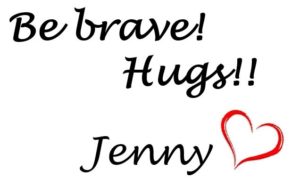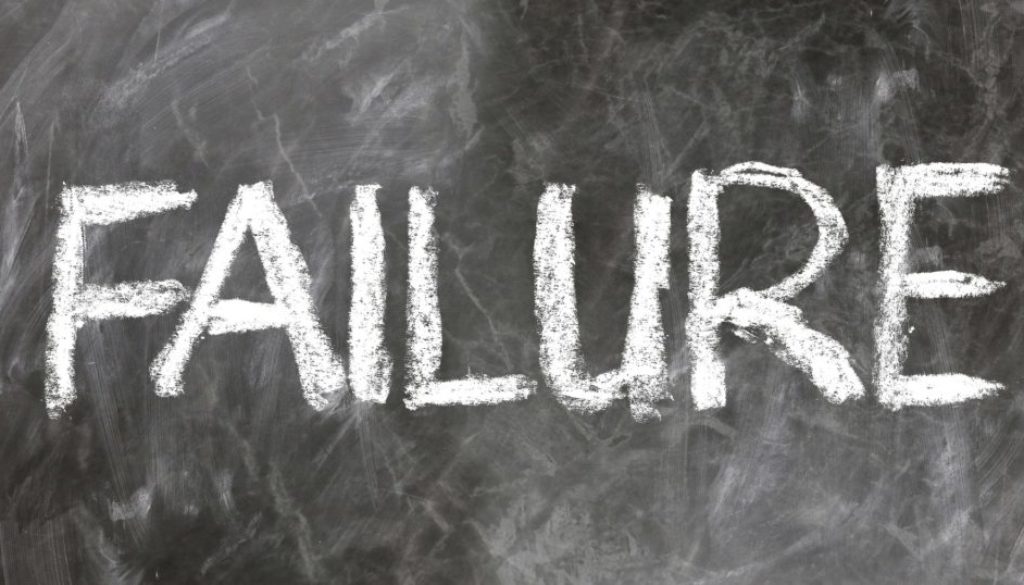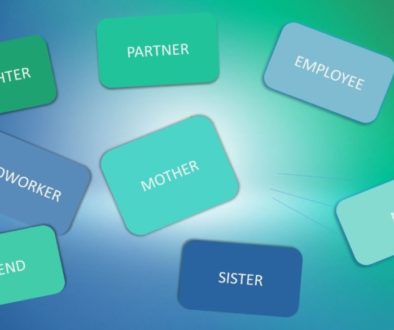Stop saying “there are no failures” – I’ve failed plenty of times
“In life there are no failures” – this is a belief in many self-help sciences today. I think it’s BS. I’ve failed many many times in my life. Failed to get the deal at work, failed on my tests in school. I’ve failed on making my relationship work, failed on taking care of my body, failed on listening to my daughters. The list goes on. Don’t tell me I didn’t fail – I feel the truth and impact of those failures to my core.
Failing sucks!
In my role as Managing director for a small IT consultant business I was the main responsible for sales. Going into sales presentations, pitching our ideas and trying to find the win-win deal was at times really challenging. To this day I remember a specific occasion where we got some live feedback on an epic fail.
Me and my colleague, who was responsible for the basics and calculations of the offer, went to a sales meeting. We knew that the customer team had been meeting with our competitors just before our meeting. We were nervous but happy going in thinking we had a strong case. The customer had teamed up with four representatives including head of purchase. At the end of our presentation when we were coming to the slide describing our prizing he said with a serious straight face; “This will be interesting. Of what we’ve read in your material sent beforehand you’re about 4 times more expensive than the other presentations we’ve seen so far.” I had trouble breathing and I could literally feel my colleague sink in her chair beside me.
Failing is very real
Saying that there are no failures is like saying that there’s no weeds in your garden or that there are no sharks in the ocean – which when I think about it might be truth if humanity doesn’t shape up. How the *beep* can people eat shark fin soup knowing how those creatures are treated? – side note – There are failures! Repeating the phrase as advice or chanting it to yourself to keep from feeling bad when something doesn’t work out as you wanted it to will not make the reality of it go away.
Don’t try to sooth yourself out of feeling the sting on not making that thing you wanted come true. Don’t pamper yourself into believing that you didn’t fail. Look at what happened. See the truth of it. You didn’t achieve what you set out to achieve – period.
We wanted to win that deal and we had prepared. Our goal was to deliver high value to our client as well as to take on a bigger delivery than ever before. We thought we had a great concept going. But we had gravely misunderstood this client. We failed to understand the level of ambition and requirements they had. We failed on asking all questions we should’ve to make sure we understood their needs.
Does it have to feel so bad?
So we failed. But does it have to feel so bad? Does it have to feel like a kick in your stomach, like you want to go to the bathroom and never come out? That’s what happened to me in that meeting. We were asked to finish out presentation, which we did, and then we had a short break before the last QA session. I went to the bathroom and sat there trying to figure out how to move on from here. I think that what saved me this time was the apparent distress that my colleague was in. She felt responsible and really bad. I had to step up for her which was way easier than for myself.
The saying “there are no failures” often come with the ending “only feedback” and this is something I can relate to and understand. Imagining that what happens is nothing but feedback on how effectively your current actions are moving you towards your goals opens me up to looking for new ways. When my current actions is not moving me in the right direction I can turn and change to see what new feedback I get.
We went back into our client meeting with the intention of learning everything we could to either repair this current offer or to at least understand how we must alter it in the future. We told the client the truth, we’d messed up in understanding their needs, and that we would really appreciate the opportunity to ask them questions to understand where we went wrong.
When we left we had an empowered feeling of having stood proud of our genuine win-win offer. We had been transparent and honest enough to admit our mistakes. I think our behavior also impressed our client. They asked us to come back and work together on other deals.
The power comes from the concept of feedback
When you say “There are no failures, only feedback” what you do is NOT making you feel good about not reaching your goals. It’s not meant to sooth you. The honest underlying truth of that statement WILL make you feel better. That truth will save you from the hurt even during all that time that it usually takes to find the ways that finally gets you to where you want to go. But the reason that it will make you feel better is because it will free you up from feeling those bad feelings in the first place.
If you can truly adopt the concept that the only thing that happens in life is a feedback on how you are showing up at the moment and combine that with the truth of how much you can learn. Then you won’t be impacted when things don’t turn out right immediately.
Want to try this theory out in your own life?

Think of a time when you failed. You did something that you’re ashamed of now. That almost makes you cringe with unease when you think about it.
Write down whatever comes to you when you ask yourself the following questions:
- Did you have a clear result in mind before going into the situation?
- What was your true deep inner intention?
- What have you learned about yourself, your profession or another person that you didn’t know before?
- If the exact same situation came again, you had a time machine and could now go back and revisit the thing that happened, how would you knowing what you know now act differently?
Everything you learn you get to keep. Every situation that happens to you is an example of a lesson, it’s a necessary stepping stone for you to move forward, it’s knowledge that combined with everything you’ve experienced will make you into the person you are becoming.
Tony Robbins prompts one of the most impactful questions in terms of feedback:
- How is this situation the best thing that ever happened to me?
Look at the situation you chose and feel the difference.




